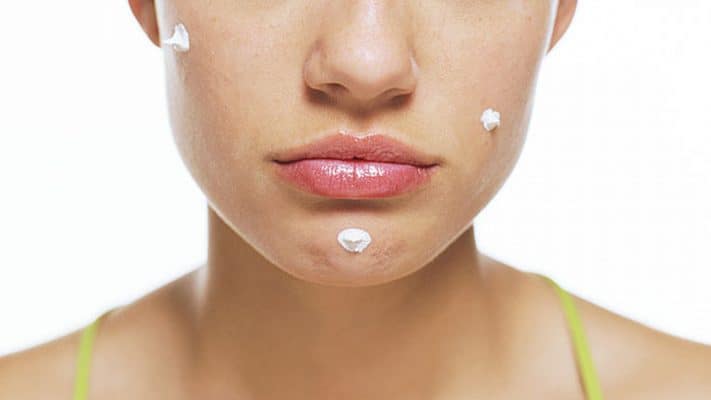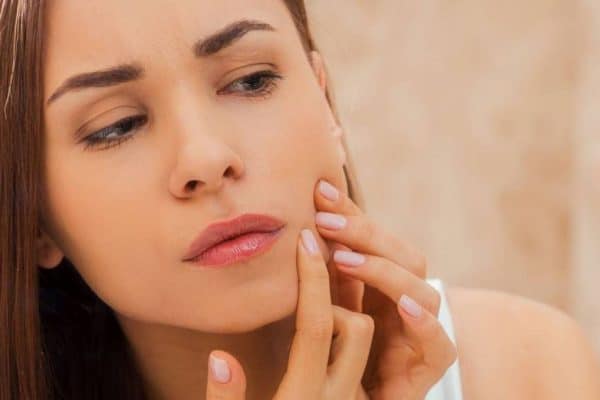
Acne is often referred to as a problem of the face, but it has actually affected virtually every part of the body. It is not a specific type of skin condition but a broad term used to describe the range of skin blemishes. These blemishes are usually caused by bacterial infections, hormonal fluctuations, and stress. The first step to clear up acne is to determine its cause. Some of the more common diagnoses for this concern are follicular unit acne, atrophic acne, cystic acne, papulo-pustular acne, plaque psoriasis, and nodulocystic acne.
If an individual can accurately determine the cause, he or she can learn how to prevent future outbreaks. In fact, prevention is the best way to treat acne and even clear it up. There are many risk factors for acne. A person’s genetics, gender, age, and ethnicity are all risk factors. These risk factors can then be grouped into three main categories:
Acne Caused by Genetics – This is probably the easiest acne to clear up because it is most likely to just cure by itself. Some examples include having long hair that can get into the pores and clog them, sun exposure, and obesity. Hormones and pregnancy are also considered to be risk factors. Stress is also believed to be a risk factor. There are many ways to treat hormonal acne. Most of these are over the counter products.
Acne Caused by Infections – These infections tend to be more stubborn because they can be caused by a variety of bacteria. Examples of these bacteria include Propionibacterium acnes, E. Coli, and Streptococcus spp. They typically occur in oily skin and typically affect the face, neck, and chest area. To treat these infections, antibiotics have been the standard treatment for this skin problem.
Natural Home Remedies – Most people are wary of over the counter and prescription medication because of their harsh side effects. However, there are some herbal remedies that are considered to be safer and are safe for even the sensitive skin. Many herbs are known to help relieve acne problems. Garlic is one such herb that has been used for centuries to treat acne problems. Another herbal remedy that has been proven effective is black cohosh. Both these herbs can be purchased from most herbal medicine stores.

How to Clear Up Acne Quickly – Some people find it helpful to use over the counter products in addition to using herbal medications. For instance, milk cleansers can be used to wash the face and reduce oil build up. Salicylic acid is another common ingredient in over the counter products that is effective for reducing the buildup of bacteria and skin cells. It is also very helpful for reducing the inflammation associated with acne.
Diet Changes – Some people do not realize that certain foods can actually make their acne problems worse. Some examples of this are foods that are high in sugar content. It is also important to drink plenty of water to help clear up the acne problems. In addition, reducing or quitting smoking and avoiding acidic foods can also help to clear up acne problems.
In addition, drinking plenty of water can help to cleanse the body from toxins. This can ultimately help to prevent acne from occurring. Garlic and milk are both excellent natural alternatives to acne treatment. They are also effective treatments for eczema as well.
Natural Home Remedies – A combination of natural home remedies and over the counter products are also effective options. Examples of these include using cucumber mask, using yogurt, using tea tree oil, and using Aloe Vera gel. Some of these options have not been proven to be effective, however, so it is important to consult a dermatologist before trying them.
Sunlight Therapy – A lot of people prefer to take ultraviolet (UV) light for the purpose of getting rid of acne. However, this can be dangerous as the UV rays can lead to serious damage to the skin. You should therefore avoid going out under the sun for prolonged periods of time. However, there are certain types of acne that respond well to sunlight.
Acne is caused when pores become clogged, resulting in excess oil production. Some of the more effective ways to clear up acne include maintaining proper hygiene and following a regular skin care routine. People who suffer from this condition may need professional help to get rid of their problem. This includes consulting with a dermatologist, who can recommend a suitable treatment plan. It is important to remember that it may take several weeks or months to clear up your acne, so it is best to stick to the treatment if at all possible.
